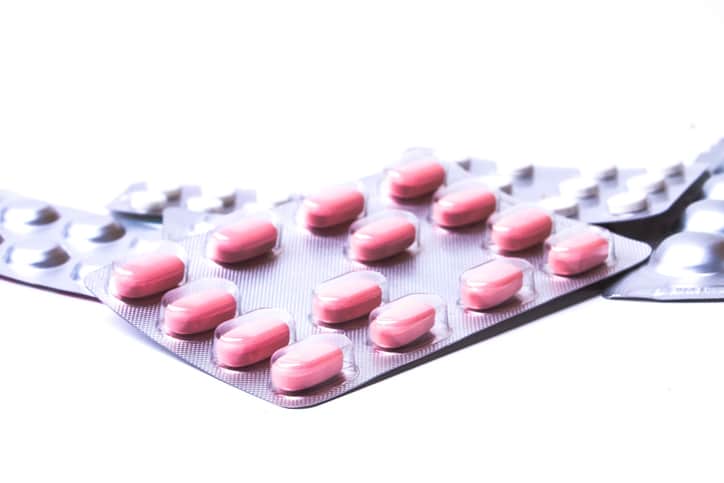We’ve been conditioned to think stomach acid is bad.
It’s usually associated with something unpleasant, like acid reflux or acid indigestion.
TV commercials for Prilosec and other acid reflux drugs have helped spread the notion that stomach acid is something you should try to eliminate.
Larry the Cable Guy stands in front of a corndog vendor. He tells you to take one Prilosec in the morning and be heartburn-free. The message of the long-running ad is this: If you take AstraZeneca’s purple pill, you can eat anything you want. Stomach acid will no longer be a problem.
The ads have been wildly successful. More than 15 million Americans now use Prilosec, Prevacid, Nexium, or another acid-suppressing medication. These drugs are called proton pump inhibitors.1
But the fact is, there’s a reason nature gave us stomach acid.
When you remove it with a drug, you leave yourself open to a wide range of serious health problems. Proton pump inhibitors (PPIs) are linked to an increased risk of heart attacks, , osteoporosis and fractures, reduced kidney and liver function, and vitamin deficiencies.2,3,4
A new study has found another danger: Using PPI drugs greatly increases your risk of serious stomach infections.
Scottish researchers examined data from about 190,000 people who used these medications and about 375,000 people who didn’t.
Those who took acid-suppressing medications were 1.7 times more likely to get a Clostridium difficile (C. diff) infection. This bacterial illness causes severe diarrhea. Serious cases can lead to perforated intestines and death.5
Researchers also found that users of these drugs had nearly four times the risk of getting food poisoning.6
Stomach acid kills pathogens in your stomach. When you take Prilosec, Prevacid, Nexium, or another PPI, you remove your protection against intestinal germs.
Why You Need Stomach Acid
Dr. Thomas MacDonald is a pharmacology researcher at the University of Dundee in Scotland. He is senior author of the new study.
“Reducing stomach acid, which acts as a barrier to infection, increases the chance of getting a GI infection,” he said. The research was published in the British Journal of Clinical Pharmacology.7
Other research has found that more than half of Americans who take PPIs don’t need them. Some people get in the habit of taking them as a preventative measure or for mild symptoms. Simple heartburn can often be relieved with antacids like Tums or Rolaids. They don’t have dangerous side effects like PPIs.8
How to Stop Using Proton Pump Inhibitors
If you’ve become reliant on PPIs, you can wean yourself off them by using drugs called H2 blockers. They are the other major class of heartburn medication. These include Pepcid, Zantac, and Tagamet. Their side effects, such as dry skin and constipation, tend to be less serious than those associated with PPIs.
Talk to your doctor about gradually reducing your PPI dosage and using an H2 blocker instead. And then, over time, you can slowly reduce your H2 dosage until you no longer take any acid-reducing medication.9
A few lifestyle changes can also help you reduce your dependence on PPIs.
Drink plenty of water and other fluids. This helps your digestion, especially after a large meal.
Avoid these heartburn-causing foods:
- Ice cream
- Soda
- Chocolate
- Fried foods
- Citrus
Eat plenty of organic green vegetables, bananas, melons, and ginger. They’ve been found to ease acid reflux.
Adding astaxanthin and coconut oil to your diet lowers inflammation in your digestive tract and helps prevent reflux. Astaxanthin is a powerful, naturally occurring carotenoid pigment found in pacific sockeye salmon, krill, red trout, crab, and lobster. It’s also available in supplement form.
If you’re looking for other ways to improve your digestive health, there’s something else you should know… Most probiotic supplements are useless. It’s because they are missing two crucial ingredients.
Get all the details HERE.
Like this Article? Forward this article here or Share on Facebook.
References:
1http://www.medicinenet.com/proton-pump_inhibitors/article.htm
2https://www.ncbi.nlm.nih.gov/pmc/articles/PMC4110863/
3http://www.webmd.com/heartburn-gerd/news/20080811/lengthy-use-of-reflux-drugs-may-up-fractures
4http://www.choosingwisely.org/patient-resources/treating-heartburn-and-gerd/
5http://www.webmd.com/digestive-disorders/clostridium-difficile-colitis#1
6http://www.reuters.com/article/us-health-infections-heartburn-pills-idUSKBN1542VI
7http://onlinelibrary.wiley.com/doi/10.1111/bcp.13205/abstract
8http://www.healthline.com/health/gerd/h2-blockers#Overview1
9https://www.institutefornaturalhealing.com/2016/05/study-these-common-drugs-can-wreck-your-organs/

